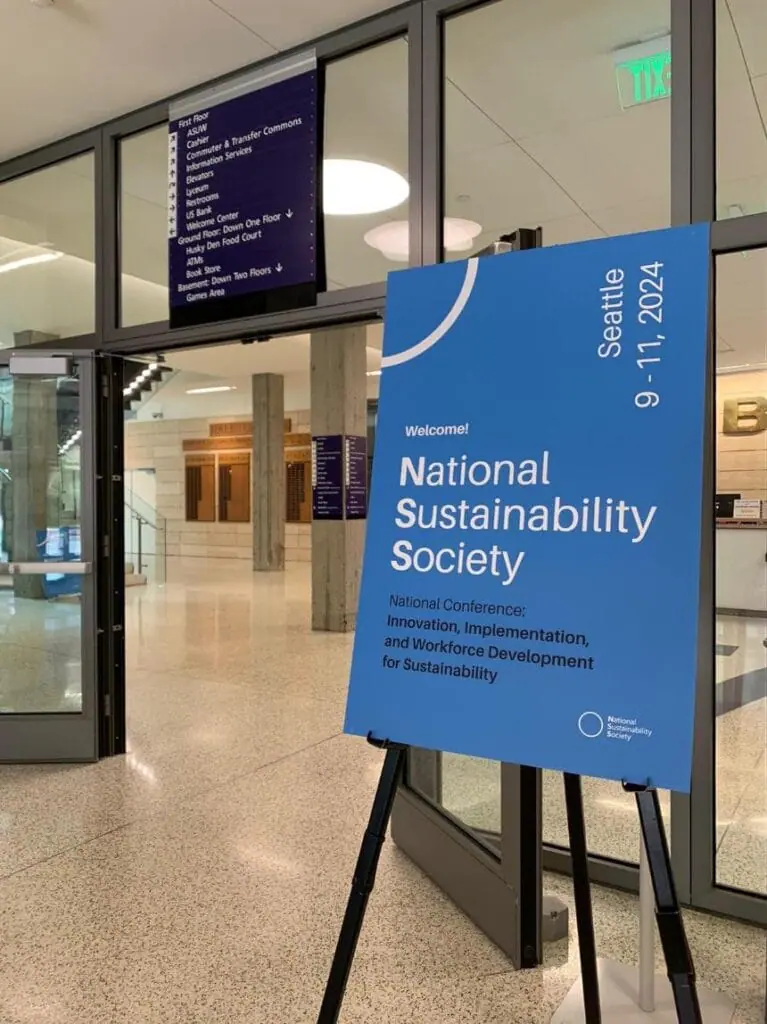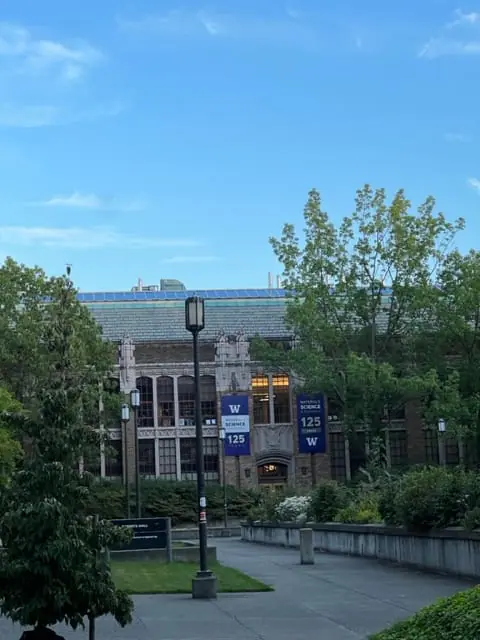The National Sustainability Society (NSS) recently hosted its first national conference, bringing together over 600 participants from academia, industry, and government to build consensus on key principles, frameworks, and competencies in sustainability. This event marked a significant milestone in shaping sustainability as both an academic field and an expanding field of practice, touching every sector - public, private and nonprofit. The conference focused on sustainability dialogue and community-building, aiming to foster the professional and academic networks that are necessary to drive sustainable transformation across industries.

As a young professional working in sustainability, attending this conference was a unique opportunity to gain insights, exchange ideas, and feel inspired by the powerful voices advocating for systemic change. The keynote speakers, Julian Agyeman, Jonathan Foley, and Amy Luers - each delivered thought-provoking addresses on the urgency of closing the gap between sustainability research and real-world implementation. Julian Agyeman, a professor at Tufts University, emphasized the importance of “just sustainabilities”, linking social justice with environmental health in a presentation about the future for urban planning and sustainable cities. Jonathan Foley, Executive Director of Project Drawdown, explored solutions that are already making a measurable impact, while Amy Luers from Microsoft highlighted the role of technology and AI in pushing the boundaries of sustainability science and innovation.
The goal of NSS is clear: To foster dialogue, community building, and practical solutions to bridge the gap between sustainability knowledge and its implementation. For a young person like me, eager to engage in the field, it was a chance to see firsthand how professionals are working to close the implementation gap while promoting sustainability innovations and greater access to equitable workforce development.
Among the most memorable sessions I attended was the one I had the honor of moderating: “Academia and Sustainable Open Innovation: Bridging Knowledge and Practice.” This session features an esteemed panel, including April Deckert, Senior Instructional Designer on the College of Global Futures Lifelong Learning team, George Basile, Associate Director of the Global KAITEKI Center, and Satoshi Shimono, Research Fellow for the Global KAITEKI center. The panel explored how academia can partner with industry to foster sustainable innovation and open knowledge-sharing practices.
The Global KAITEKI Center’s approach to sustainability - referred to as KAITEKI, a Japanese philosophy which translates to the sustainable well-being of people, society, and Earth - set the stage for our discussion. George Basile explained the Center’s focus on solving business challenges through open innovation and fostering global collaboration to achieve sustainability. One of the key themes was how education plays a vital role in equipping future innovators with the skills to drive this transformation, aligning academic efforts with industrial needs to accelerate the development of solutions.
The presentation broke down the crucial objectives of sustainable open innovation, including:
1. Knowledge generation and research that directly impacts industrial practice.
2. Educating future innovators who can lead the charge towards sustainability.
3. Collaboration with industry to ensure that academic work is relevant and impactful.

One point that particularly resonated with me was when the panel discussed the intersection of open innovation and sustainability. Satoshi Shimono described how collaboration between academia and industries could prioritize solutions that simultaneously address environmental, social, and economic challenges. This approach ensures that sustainability is embedded in the core of business strategies, not just an afterthought.
One of the panelists, April Deckert, explored academia’s role in sustainable innovation, focusing on how universities like Arizona State University, through the Global KAITEKI Center, are generating knowledge, educating future innovators, and creating key competencies to upskill employees into green jobs. She also touched on the importance of education for sustainable open innovation, which is crucial for empowering the next generation to tackle the complex challenges of sustainability through interdisciplinary approaches.
The session concluded by emphasizing impact and outcomes - metrics for success, real-world case studies, and future visions of scaling sustainability efforts through continuous growth and innovation. The panelists encouraged all of us to engage in open innovation initiatives, champion a culture of sustainability, and collaborate across sectors to ensure that these efforts reach their full potential. As I moderated the session, I felt energized by the conversation and it became evident that academia is not just educating future leaders but actively shaping the frameworks and tools we need to create a sustainable future. The NSS conference reminded me of the importance of staying connected, championing new ideas, and being an active participant and listener in the sustainability movement.